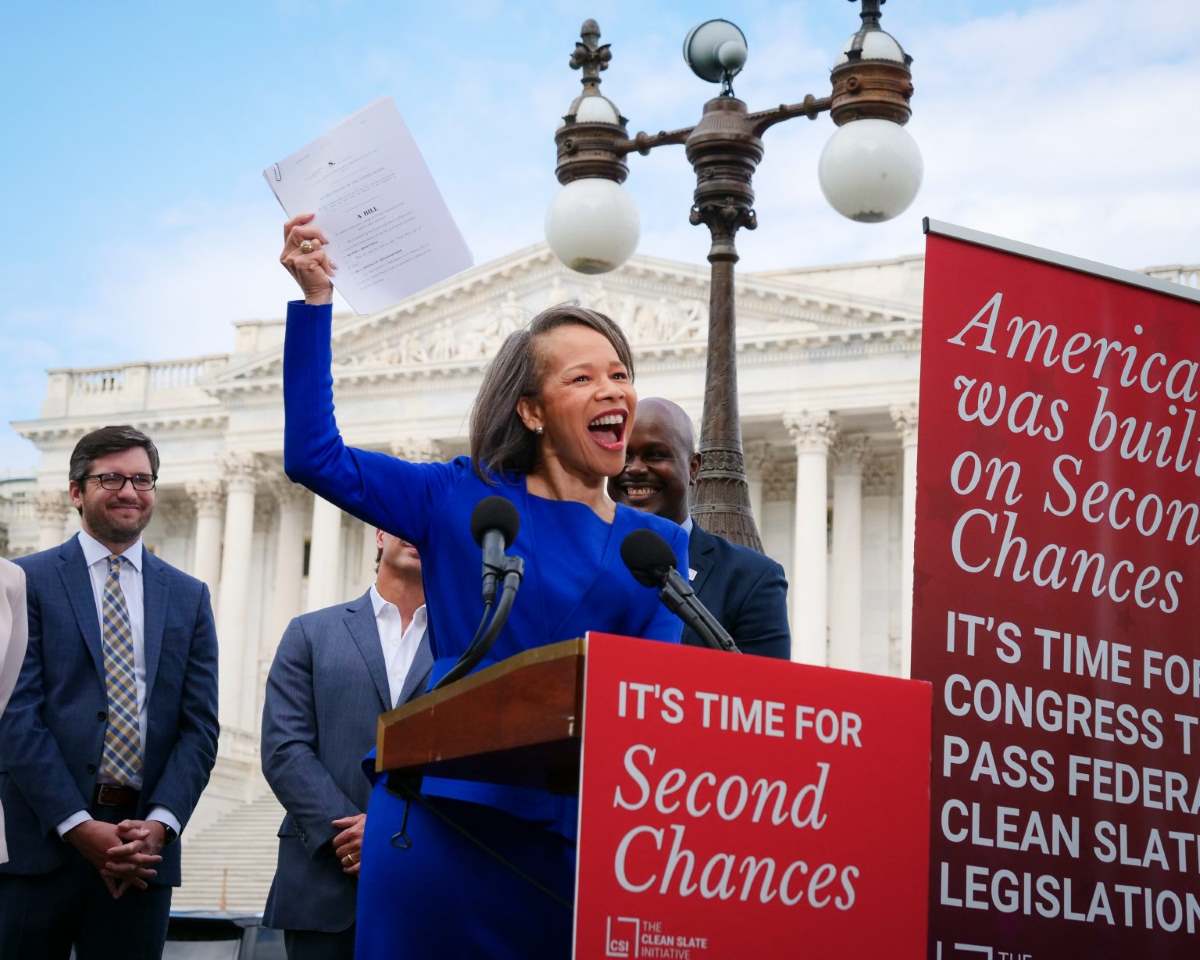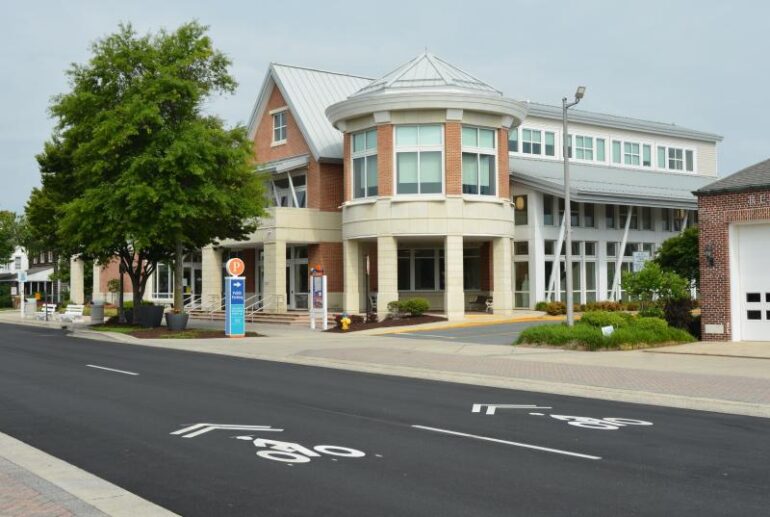-
 play_arrow
play_arrow
Radio Rehoboth

WASHINGTON D.C. — U.S. Senator Lisa Blunt Rochester is renewing her push for job creation and reducing barriers for those who were incarcerated for nonviolent offenses.
Joined by Republican and Democratic lawmakers alike in front of the U.S. Capitol Building, Blunt Rochester announced that she would reintroduce the Clean Slate Act, which would create a federal process to seal select records for low-level crimes. The bill would also establish the automatic sealing of nonviolent federal marijuana offenses.
If passed, the Clean Slate Act would be the first to create a federal process to seal such records.
“I think it’s important that we emphatically state that people who have served their time and paid their debt serve a second chance and a fresh start,” Blunt Rochester told supporters at a Wednesday press conference. “One of the things I have heard about from people up and down the state is that [people] could not find people to work. Whether you care about jobs or justice, this bill is for you.”
In recent years, there has been a movement across the country to seal records as a bid to open up more opportunities for employment, securing housing and accessing education. One in three people in America have an arrest or a conviction record, but many may face challenges with passing a background check for a job or an apartment if the record is not sealed.
The Clean Slate Initiative, founded by Dr. Sheena Meade following her own arrest after a bounced check in 2004, has advocated for easing the burden to seal records. The first state to adopt the Clean Slate Act was Pennsylvania in 2018 which has sealed about 30 million cases; Its action has since been expanded to other low-level drug offenses and property crimes.
Other states that have passed Clean Slate laws include California, Colorado, Connecticut, Michigan, Minnesota, New Jersey, New York, Oklahoma, Utah, and Virginia. Delaware’s own version went into effect last summer, opening the chance for sealed records to more than 290,000 Delawareans. As of April, the ACLU of Delaware reports that less than 1% had been cleared.
If the Clean Slate Act achieves bipartisan support, it would go a long way in terms of opening doors that have been long shut to many, Meade said. The Clean Slate Initiative found that one in three people surveyed in Pennsylvania, Utah and Michigan said it was difficult to find a job, as noted in its impact report. Two out of three surveyed found it difficult to pay bills.
“The Clean Slate Act and Fresh Start Act are about redemption, economic opportunity, and human dignity, and ensuring people who have paid for their mistakes have a meaningful chance to rebuild their lives,” Meade said in a prepared statement. States have led the way, now it’s time for Congress to pass federal Clean Slate legislation — because justice isn’t served when redemption is denied.”
The bill is co-sponsored by U.S. Sen. Rand Paul (R-Ky.) and U.S. Laurel Lee (R-Fla.). Other supporters include U.S. Rep. Lucy McBath (R-Ga.) and U.S. Rep. Nathaniel Moran (R-Texas).
The bipartisan support has raised Blunt Rochester’s belief t in the bill’s chances in passing both chambers, noting that Republicans may not agree with Democrats, but there are some issues that still are evergreen. Paul and Lee are both particularly passionate about Clean Slate, she told the Delaware Business Times.
“This is something I know was a priority in the first [Trump] administration, because that was when First Step Act was passed,” Blunt Rochester said, referring to a criminal justice law that was aimed at reforming federal prison and sentencing laws. “We will continue to advocate for this, and the great thing is that this movement has been consistently bipartisan across the country.”
Blunt Rochester, who was the former Delaware Labor Secretary before she was elected to federal office, has made job creation and employment placement the cornerstone of her time in office. In 2023, she unveiled the Jobs Agenda which solidified many of her efforts – including previous support for Clean Slate Act, as well as other bills aimed to strengthen supply chains and create new housing programs.
The senator acknowledged that the Clean Slate Act could be viewed as a government efficiency bill to streamline the re-entry process for many in the workforce, as well as one focused on justice and jobs.
“I see it as all three. It’s integral to the Jobs Agenda, because I do hear from employers up and down the state that they’re having challenges hiring people, and a lot of times, it’s the background checks that stop people with non-violent offenses from getting a job or housing,” she said.
Go to Source:https://delawarebusinesstimes.com/news/blunt-rochester-files-federal-clean-slate-bill/
Author: Katie Tabeling
Written by: Katie Tabeling
Similar posts
Copyright 2023 East Sussex Public Broadcasting, Inc.









